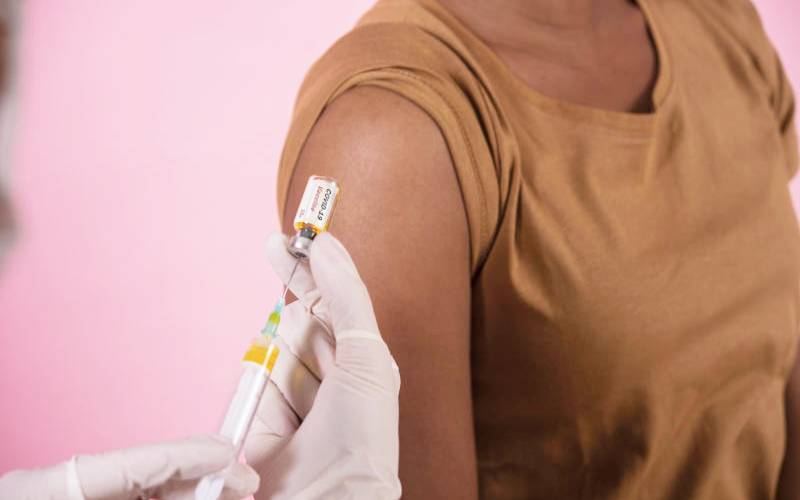
Kenya will set up a Covid-19 vaccine manufacturing plant by the end of this year, Health Cabinet Secretary Mutahi Kagwe has said.
This comes as the Ministry of Health plans to acquire 17 million doses of Pfizer and Johnson&Johnson vaccines by June following the decision by India to halt the export of Oxford/AstraZeneca vaccine.
Appearing before the Senate Public Health committee on Wednesday, Kagwe said: “By the end of this year, we should have our own form and fill plant. We have already commissioned a team of medical experts to look into the practicality of this and mass produce our own vaccine.”
He added: "Form and fill means that we will need to identify a partner who has already done the vaccine so that that the same is done locally."
The CS explained that once set up, the facility will not only manufacture the Covid-19 vaccine but also polio and yellow fever vaccines.
Kenya only produces vaccines for animals.
The Africa Union and the Africa Centre for Disease Control (CDC) identified a form and fill plant in South Africa to produce the Covid-19 vaccine.
Other countries identified are Rwanda, Senegal, Algeria, Tunisia and Nigeria.
“Kenya is already manufacturing livestock vaccines for export but it seems we had forgotten about the human vaccines. This is the price we have to pay,” said Kagwe.
The CS said the ministry has already booked 10 million vaccine doses of Johnson&Johnson and seven million doses of Pfizer. The vaccines must, however, get the approval of the World Health Organization (WHO) as well as the Pharmacy and Poisons Board. “But the earliest we are able to get the vaccines is in June,” he said.
The CS noted that the Pfizer vaccine is not in high demand due to its storage demand of minus 70 degrees.
He however said the government can acquire the required special storage facilities and join the ranks of countries such as Ghana and South Africa, which have booked 20 million doses. He explained that India slowed the supply of Oxford/Astrazeneca to address its rising Covid-19 cases which have hit more than 200,000 daily.
“No country in the world, including the US, is using a single vaccine and we are seeking Johnson&Johnson and Pfizer vaccines to address the shortage. We have no choice at the moment,” he said. He explained that Pfizer has committed to using its own platforms to deliver the vaccine up to multiple points of use in and outside Nairobi.
Kagwe also said the government would source money from all sectors and make budgetary cuts to buy the vaccines. Notably, Kenya was expected to receive the second batch of Oxford/ AstraZeneca vaccine from India in April.
“The 1.2 million doses in the country cannot take us to May unless we slow down the vaccination. As a government we have however resolved that we will go ahead and vaccinate the 1.2 million people as opposed to vaccinating half that number and waiting it out,” added the CS.
Kagwe said Kenya obtains vaccines from only three sources: Government-to-government donations, such as the recent donation of 100,000 doses from the government of India.
The second platform is the Covax facility, from which the government obtained 1.1 million doses, and the third is the AU.
Kagwe said under the AU facility, which Kenya has yet to use, they have negotiated rates with vaccine manufacturers. He said the government prohibited the private sector from participating in vaccines due to the confusion it would cause, as well as the risk of some people taking advantage of the situation and selling the doses while they are free.
He said the supply chain had made acquiring more vaccines difficult, but that the government was working to ensure that stocks do not run out. The CS noted that Africa had expected 75 million doses through the Covax facility, but only 12 million had been delivered so far.
He also said the ministry banned Russian Sputnik-5 vaccine to allow only use of vaccines approved by WHO.
 The Standard Group Plc is a multi-media organization with investments in media platforms spanning newspaper print
operations, television, radio broadcasting, digital and online services. The Standard Group is recognized as a
leading multi-media house in Kenya with a key influence in matters of national and international interest.
The Standard Group Plc is a multi-media organization with investments in media platforms spanning newspaper print
operations, television, radio broadcasting, digital and online services. The Standard Group is recognized as a
leading multi-media house in Kenya with a key influence in matters of national and international interest.











